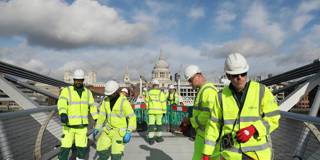
The West’s New Infrastructure Imperative
A dim future awaits any society that allows its infrastructure to degrade and underinvests in new needs. But as the conversation about broadening the scope of infrastructure grows louder in the West, there are glimmers of hope that these countries are finally waking up to the need to invest more in public goods and services.
CAMBRIDGE – An emerging debate about the definition of infrastructure suggests that Western democracies are starting to shift their priorities. The renewed focus on infrastructure and what it includes is to be welcomed – not least because it rebuts the claim the West has lost faith in the future.